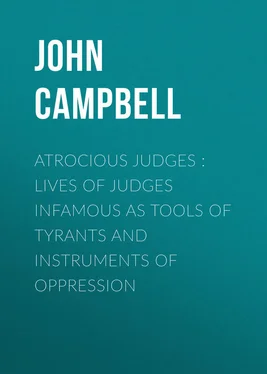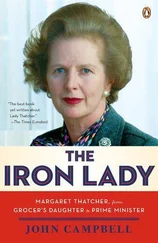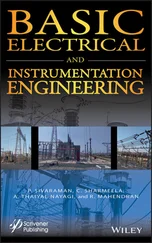John Campbell - Atrocious Judges - Lives of Judges Infamous as Tools of Tyrants and Instruments of Oppression
Здесь есть возможность читать онлайн «John Campbell - Atrocious Judges - Lives of Judges Infamous as Tools of Tyrants and Instruments of Oppression» — ознакомительный отрывок электронной книги совершенно бесплатно, а после прочтения отрывка купить полную версию. В некоторых случаях можно слушать аудио, скачать через торрент в формате fb2 и присутствует краткое содержание. Жанр: foreign_antique, foreign_prose, Биографии и Мемуары, на английском языке. Описание произведения, (предисловие) а так же отзывы посетителей доступны на портале библиотеки ЛибКат.
- Название:Atrocious Judges : Lives of Judges Infamous as Tools of Tyrants and Instruments of Oppression
- Автор:
- Жанр:
- Год:неизвестен
- ISBN:нет данных
- Рейтинг книги:5 / 5. Голосов: 1
-
Избранное:Добавить в избранное
- Отзывы:
-
Ваша оценка:
- 100
- 1
- 2
- 3
- 4
- 5
Atrocious Judges : Lives of Judges Infamous as Tools of Tyrants and Instruments of Oppression: краткое содержание, описание и аннотация
Предлагаем к чтению аннотацию, описание, краткое содержание или предисловие (зависит от того, что написал сам автор книги «Atrocious Judges : Lives of Judges Infamous as Tools of Tyrants and Instruments of Oppression»). Если вы не нашли необходимую информацию о книге — напишите в комментариях, мы постараемся отыскать её.
Atrocious Judges : Lives of Judges Infamous as Tools of Tyrants and Instruments of Oppression — читать онлайн ознакомительный отрывок
Ниже представлен текст книги, разбитый по страницам. Система сохранения места последней прочитанной страницы, позволяет с удобством читать онлайн бесплатно книгу «Atrocious Judges : Lives of Judges Infamous as Tools of Tyrants and Instruments of Oppression», без необходимости каждый раз заново искать на чём Вы остановились. Поставьте закладку, и сможете в любой момент перейти на страницу, на которой закончили чтение.
Интервал:
Закладка:
“2. ‘How those are to be punished who procured that statute and commission?’ — A. That they were to be punished with death, except the king would pardon them.
“3. ‘How those are to be punished who moved the king to consent to the making of the said statute?’ — A. That they ought to lose their lives unless his Maj. would pardon them.
“4. ‘What punishment they deserved who compelled, straightened, or necessitated the king to consent to the making of the said statute and commission?’ — A. That they ought to suffer as traitors.
“5. ‘How those are to be punished who hindered the king from exercising those things which appertain to his royalty and prerogative?’ — A. That they are to be punished as traitors.
“6. ‘Whether after in parl. assembled, the affairs of the kingdom, and the cause of calling that parl. are by the king’s command declared, and certain articles limited by the king upon which the lords and commons in that parl. ought to proceed; if yet the said lords and commons will proceed altogether upon other articles and affairs, and not at all upon those limited and proposed to them by the king, until the king shall have first answered them upon the articles and matters so by them started and expressed, although the king’s command be to the contrary; whether in such case the king ought not to have the governance of the parl. and effectually overrule them, so as that they ought to proceed first on the matters proposed by the king: or whether, on the contrary, the lords and commons ought first to have the king’s answer upon their proposals before they proceeded further?’ — A. That the king in that behalf has the governance, and may appoint what shall be first handled, and so gradually what next in all matters to be treated of in parl., even to the end of the parl.; and if any act contrary to the king’s pleasure made known therein, they are to be punished as traitors.
“7. ‘Whether the king, whenever he pleases, can dissolve the parl., and command the lords and commons to depart from thence, or not?’ — A. That he can; and if any one shall then proceed in parl. against the king’s will, he is to be punished as a traitor.
“8. ‘Since the king can, whenever he pleases, remove any of his judges and officers, and justify or punish them for their offences; whether the lords and commons can, without the will of the king, impeach in parl. any of the said judges or officers for any of their offences?’ — A. That they cannot; and if any one should do so he is to be punished as a traitor. 30 30 Some of our federal judges would no doubt like very much to see this rule established among us. — Ed.
“9. ‘How he is to be punished who moved in parl. that the statute should be sent for whereby Edw. II. (the king’s great grandfather) was proceeded against and deposed in parl.; by means of sending for and imposing which statute, the said late statute, ordinance, and commission, were devised and brought forth in parl.?’ — A. That as well he that so moved, as he who by pretence of that motion carried the said statute to the parl., are traitors and criminals, to be punished with death.
“10. ‘Whether the judgment given in the last parl. held at Westm. against Mich. de la Pole, Earl of Suffolk, was erroneous and revocable, or not?’ — A. That if that judgment were now to be given, they would not give it; because it seems to them that the said judgment is revocable, as being erroneous in every part of it.
“In testimony of all which, the judges and serjeants aforesaid, to these presents have put their seals in the presence of the rev. lords, Alex. abp. of York, Rob. abp. of Dublin, John bp. of Durham, Tho. bp. of Chichester, and John bp. of Bangor, Rob. duke of Ireland, Mich. earl of Suffolk, John Rypon, clerk, and John Blake, esq.; given the place, day, month, and year aforesaid.”
Tresilian exultingly thought that he had not only got rid of the obnoxious commission, but that he had annihilated the power of Parliament by the destruction of parliamentary privilege, and by making the proceedings of the two houses entirely dependent on the caprice of the sovereign.
He then attended Richard to London, where the opinion of the judges against the legality of the commission was proclaimed to the citizens at the Guildhall; and all who should act under it were declared traitors. A resolution was formed to arrest the most obnoxious of the opposite faction, and to send them to take their trials before the judges who had already committed themselves on the question of law; and, under the guidance of Tresilian, a bill of indictment was actually prepared against them for a conspiracy to destroy the royal prerogative. Thomas Ush, the under sheriff, promised to pack a jury to convict them; Sir Nicholas Brambre, who had been thrice lord mayor, undertook to secure the fidelity of the citizens; and all the city companies swore that they would live and die with the king, and fight against his enemies to their last breath. Arundel, Bishop of Ely, was still chancellor; but Tresilian considered that the great seal was now within his own grasp, and, after the recent examples of chief justices becoming chancellors, he anticipated no obstacle to his elevation.
At such a slow pace did news travel in those days, that, on the night of the 10th of November, Richard and his chief justice went to bed thinking that their enemies were annihilated, and next morning they were awoke by the intelligence that a large force, under the Duke of Gloucester and the Earls of Arundel and Nottingham, was encamped at Highgate. The confederate lords, hearing of the proceedings at Nottingham, had immediately rushed to arms, and followed Richard towards London, with an army of 40,000 men. The walls of London were sufficient to repel a sudden assault; and a royal proclamation forbade the sale of provisions to the rebels, in the hope that famine might disperse them. But, marching round by Hackney, they approached Aldgate, and they appeared so formidable, that a treaty was entered into, according to which they were to be supplied with all necessaries, on payment of a just price, and deputies from them were to have safe conduct through the city on their way to the king at Westminster. Richard himself agreed that on the following Sunday he would receive the deputies, sitting on his throne in Westminster Hall.
At the appointed hour he was ready to receive them, but they did not arrive, and he asked “how it fortuned that they kept not their promise.” Being answered, “Because there is an ambush of a thousand armed men or more in a place called the Mews, contrary to covenant; and therefore they neither come, nor hold you faithful to your word,” – he said, with an oath, that “he knew of no such thing,” and he ordered the sheriffs of London to go thither and kill all they could lay hands on. The truth was, that Sir Nicholas Brambre, in concert with Tresilian, had planted an ambush near Charing Cross, to assassinate the lords as they passed; but, in obedience to the king’s order, the men were sent back to the city of London. The lords at last reached Westminster, with a gallant troop of gentlemen; and as soon as they had entered the great hall, and saw the king in his royal robes sitting on the throne, with the crown on his head and the sceptre in his hand, they made obeisance three times as they advanced, and when they reached the steps of the throne they knelt down before him with all seeming humility. He, feigning to be pleased to see them, rose and took each of them by the hand, and said “he would hear their plaint, as he was desirous to render justice to all his subjects.” Thereupon they said, “Most dread sovereign, we appeal of high treason Robert Tresilian, that false justice; Nicholas Brambre, that disloyal knight; the Archbishop of York; the Duke of Ireland; and the Earl of Suffolk;” – and, to prove their accusation to be true, they threw down their gauntlets, protesting by their oaths that they were ready to prosecute it to battle. “Nay,” said the king, “not so; but in the next Parliament (which we do appoint beforehand to begin the morrow after the Purification of our Lady,) both they and you, appearing, shall receive according to law what law doth require, and right shall be done.”
Читать дальшеИнтервал:
Закладка:
Похожие книги на «Atrocious Judges : Lives of Judges Infamous as Tools of Tyrants and Instruments of Oppression»
Представляем Вашему вниманию похожие книги на «Atrocious Judges : Lives of Judges Infamous as Tools of Tyrants and Instruments of Oppression» списком для выбора. Мы отобрали схожую по названию и смыслу литературу в надежде предоставить читателям больше вариантов отыскать новые, интересные, ещё непрочитанные произведения.
Обсуждение, отзывы о книге «Atrocious Judges : Lives of Judges Infamous as Tools of Tyrants and Instruments of Oppression» и просто собственные мнения читателей. Оставьте ваши комментарии, напишите, что Вы думаете о произведении, его смысле или главных героях. Укажите что конкретно понравилось, а что нет, и почему Вы так считаете.












